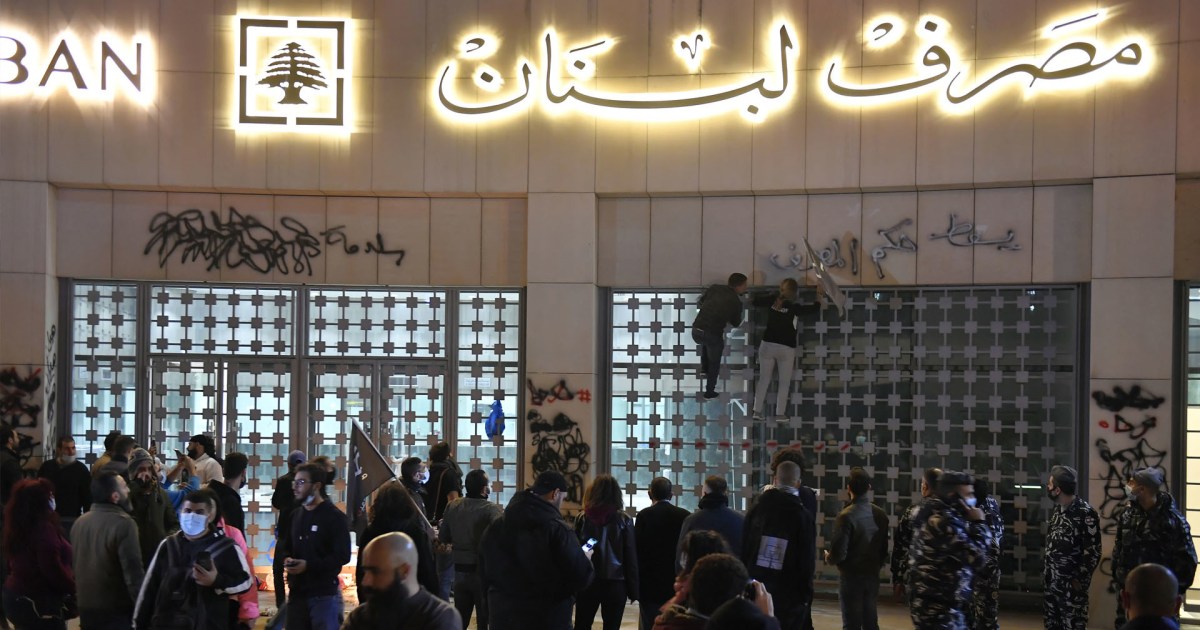The Lebanese citizen detained a number of bank employees and clients in eastern Lebanon, after the bank refused to hand him an amount from his account, according to the National News Agency.
The citizen was able to obtain his deposit after a negotiation session between him and the security forces and the management of the bank.
The Association of Banks in Lebanon condemned the incident, denying any connection with the withholding of depositors' money, and said in a series of tweets that it "rejects the repeated attacks that included a number of branches threatening the lives of employees, and amounted to taking them hostages and threatening them with bombs, burning and undermining their dignity, while carrying out their duties to secure a living." In difficult circumstances for all Lebanese.
And she added in another tweet, "The banks operate according to local and international financial laws, so there is no theft of money or exploitation of deposits, but the crisis is the result of years of state mismanagement through deficit, waste and corruption that is not hidden from anyone."
The Association of Banks in Lebanon considered that the recovery of deposits is one way that passes through a comprehensive recovery plan in which the state preserves depositors' money.
And journalist writer Imad Chidiac revealed, in a statement to the "National Eight - Nasherkom" program, that the Lebanese citizen who carried out the incident was unarmed and was carrying a petrol bottle in his hand, highlighting his refusal to use violence to obtain money.
He also said that the Banque du Liban, which preserves the rights of depositors, does not care about it.
Attitudes about what happened on the Lebanese platforms varied, as some tweeters described the matter as normal in light of the banks' refusal to hand depositors their money, while others considered what happened to be a violation of the law and a violation of the right of bank employees.
Among the interactions that were monitored by an episode of “Nashrat Al-Taqbeh – your publication” in the episode 20/2022, Fouad Debs wrote, “Unfortunately, this ruling junta did not leave people with a choice other than violence and the fulfillment of the right to self.”
While Maya Awada contented herself in her tweet by saying, "The battle of the owners of the right."
On the other hand, Abdul Razzaq Jassim said, "In any case, this is a crime. The state is empowered with matters of security and the fulfillment of people's rights. If we let each person take his rights into his own hands, chaos would prevail and security would pervade, regardless of whether governments were remiss or not."
Lebanon has been suffering for some time, an unprecedented economic crisis that led to a record collapse in the value of the local currency against the dollar, as well as a decline in the volume of financial flows from abroad, a rise in the volume of debt, a shortage of fuel and medicines, and a collapse in the purchasing power of citizens.
In early June, the World Bank described the crisis in Lebanon as "the most severe and severe in the world", and ranked it among the three most difficult crises recorded in history since the mid-19th century.

